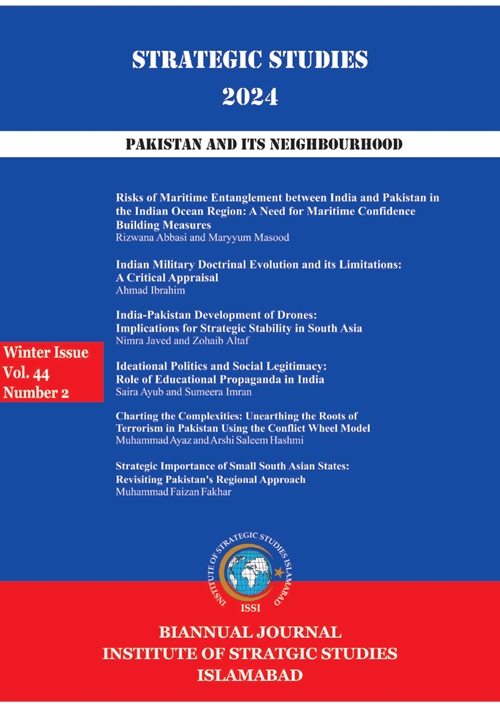Strategic Importance of Small South Asian States- Revisiting Pakistan’s Regional Approach
Abstract
This article examines the growing strategic significance of small South Asian states including Sri Lanka, Nepal, Bhutan and Maldives in the backdrop of Sino-Indian competition for influence over these states. It is argued that the small states of South Asia have attained autonomy by not formally joining any balancing efforts by India or China, while at the same time these states are receiving economic benefits from both sides. It also argues that Pakistan remains the least integrated country of South Asia due to its inward looking and India centric approach towards the region. Therefore, this article proposes that as stated in National Security Policy of Pakistan (NSP), Pakistan needs to shift its diplomatic focus from geopolitics to geo-economics in South Asia. This could be achieved if Pakistan re-evaluates its regional approach by increasing engagement with the small South Asian states. Moreover, the article also conducts an in-depth analysis of Pakistan’s historical and current relationship with each of the stated small states of South Asia and identifies potential areas of cooperation. Findings of this paper suggest that Pakistan can bolster its diplomatic, economic, and political position in the region by enhancing cooperation with the smaller states of South Asia. The paper also recommends policy measures for Pakistan that could help achieve increased trade and cooperation with the small states of South Asia.

Published
How to Cite
Issue
Section
Copyright (c) 2025 Strategic Studies

This work is licensed under a Creative Commons Attribution-NonCommercial 4.0 International License.



